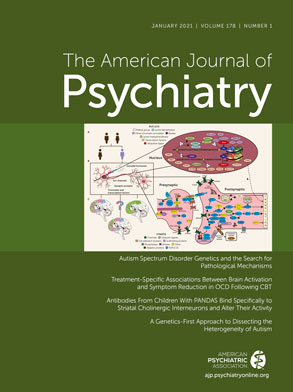To the Editor: We appreciate the comments by Drs. Leistikow, Smith, Payne, and Osborne and agree that, in this day and age, the field of reproductive psychiatry views valproate as a last resort for treatment in women of childbearing age, potentially justifiable when it is the only option for treating severe mental illness. We also agree that in utero valproate exposure has been associated with an increased risk of lower IQ, attention deficit hyperactivity disorder, and behavioral issues in exposed children and an increased risk of polycystic ovary syndrome, hyperandrogenism, and menstrual irregularities in women.
The case presented in our Clinical Case Conference, “Standard of Care: Reasonable But Not Perfect,” occurred more than 13 years ago, well before the risks of valproate use during pregnancy were understood to the extent that they are today. At the time, valproate was commonly used as a treatment modality, with more than 900,000 prescriptions written annually for women of reproductive age (
1). The patient in the case presented was using a reliable form of birth control, placing her risk of having an infant with a neural tube defect at less than one in a thousand. She had severe mental illness, with symptoms of suicidality and thoughts of harming her children and her husband, necessitating a rapid treatment response. Her symptoms had failed to respond to other pharmacologic treatments, and the atypical features of her case suggested a more favorable response to valproate than to lithium (
2,
3).
At the time this case occurred, the treating clinicians met the standard of care; nevertheless, at trial, they lost the malpractice case. The purpose of our Clinical Case Conference was to clarify that standard of care requires that the threshold of reasonable care, not optimal care, is provided, and to understand the decisions that the treating clinicians made at the time of the case, as well as to highlight areas where alternative decisions, precautions, and actions could have been considered.
Drs. Leistikow, Smith, Payne, and Osborne accurately point out “a changing standard of care” regarding the use of valproate in reproductive-age women and suggest that the doctors’ decision, in this case, to “treat with valproate instead of other options, such as lithium, may look less reasonable in years to come.” However, clinicians can be responsible only for making treatment decisions and be held to a standard of care based on the information and the body of knowledge available at the time. Therefore, it may be time for current practice guidelines in the treatment of bipolar disorder to address the issue of whether valproate should be used at all, and if so, the specific circumstances and criteria for use, in the treatment of reproductive-age women.

